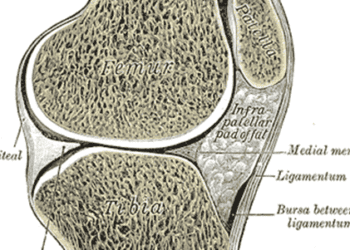Paroxetine a good non-hormonal option for hot flashes
1. Paroxetine use was associated with decreased frequency of hot flashes and lower composite vasomotor symptom (VMS) severity score.
2. Women randomized to receive paroxetine were more likely to experience nausea and dizziness than those randomized to placebo.
Evidence Rating Level: 1 (Excellent)
Study Rundown: Hot flashes, which may include symptoms of heat, sweating and palpitations followed by chills and shivering, are the most common complaint among women going through menopause. VMS are experienced by approximately 80% of women in the United States, most commonly in the late menopause and early postmenopausal stages. While VMS can significantly impair quality of life, only a minority of women seek treatment. Hormonal therapy with estrogen has been shown to decrease VMS but may increase risk for cardiovascular disease and breast cancer. As such, hormonal therapy is only recommended for short-term use and may not be a suitable choice for women with a prior history of heart disease, stroke or breast cancer. Non-hormonal treatment options include selective serotonin reuptake inhibitor and serotonin-norepinephrine reuptake inhibitor antidepressants, as well as anti-epileptic medications such as gabapentin. In the present work, authors pooled data from 6 randomized controlled trials (RCTs) and found that paroxetine was effective in reducing the frequency and severity of VMS; they also found that use of the drug was associated with nausea and dizziness.
Strengths of the study were inclusion of data only from randomized placebo-controlled trials. The meta-analysis was limited primarily by variability in paroxetine dosing and formulation across studies and limited duration of follow-up. Additional RCTs are needed to identify the optimal paroxetine dose and formulation that effectively treats VMS over the long-term while minimizing adverse effects.
Click to read the study in BJOG
Click to read an accompanying editorial in BJOG
Relevant Reading: A review of paroxetine for the treatment of vasomotor symptoms
In-Depth [systematic review and meta-analysis]: This systematic review evaluated the impact and safety of paroxetine use in the treatment of VMS in peri- and post- menopausal women with moderate to severe VMS in placebo-controlled RCTs. The meta-analysis included 5 articles and 6 RCTs, with a total of 1571 participants. The primary outcomes of interest were frequency of VMS, daily composite VMS severity score, and frequency of nausea. Secondary outcomes included duration of VMS and frequency of adverse side effects such as somnolence, dry mouth and dizziness.
Paroxetine use was associated with decreased frequency of VMS at 4 weeks (mean difference 8.86 per week, CI 5.69-12.04) and 12 weeks (mean diff 7.36 per week, CI 4.25-10.46). The daily composite VMS severity score was also lower among patients randomized to receive paroxetine at 4 weeks (p < 0.00001) and 12 weeks (p < 0.009). Nausea and dizziness were more frequently experienced among women using paroxetine (RR 2.45, CI 1.29-4.66; RR 2.44, CI 1.02-5.85 respectively).
Image: CC/wiki/MorgueFile
©2015 2 Minute Medicine, Inc. All rights reserved. No works may be reproduced without expressed written consent from 2 Minute Medicine, Inc. Inquire about licensing here. No article should be construed as medical advice and is not intended as such by the authors or by 2 Minute Medicine, Inc.









